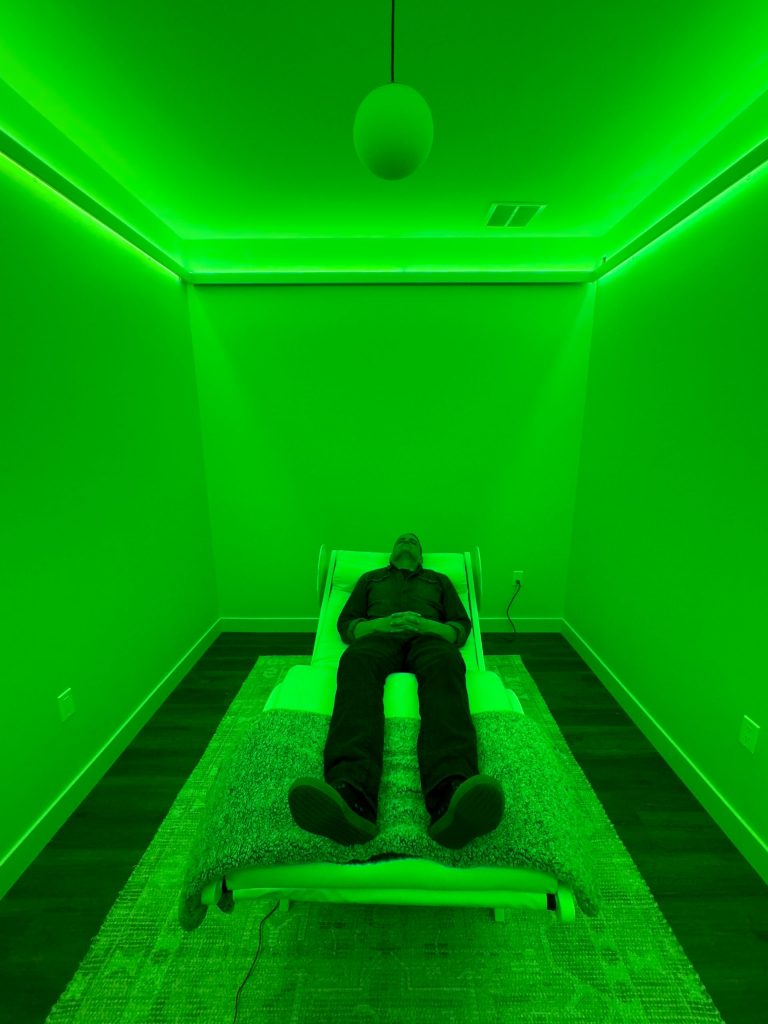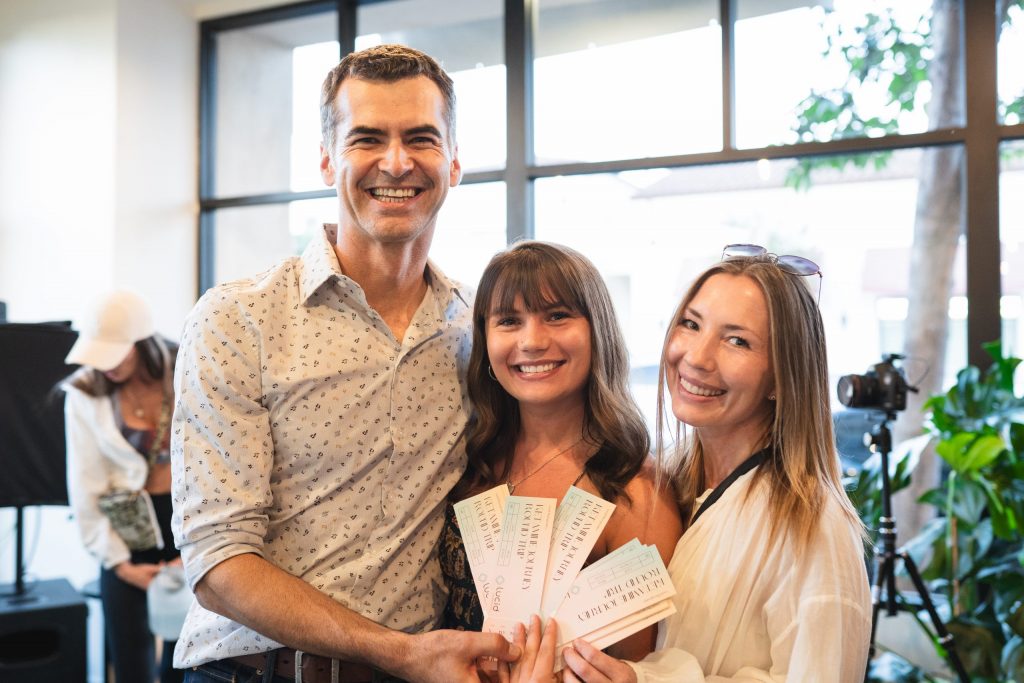A psychedelic renaissance: Lucid Therapeutics aims to heal mental wounds
IN THIS ARTICLE
- Health Care & Life Science Topic
- Jorge Mercado Author
By Jorge Mercado Wednesday, December 6th, 2023

For nearly two decades, Dr. Remi Drozd spent his life healing people’s physical pain as an emergency room physician on the East Coast.
And while it brought him joy, it also left him thinking about the subsect of people he felt he couldn’t help quite as easily.
“For 15 years I witnessed people going through immense physical trauma and what I noticed was that physical wounds heal but mental wounds don’t,” Drozd told the Business Times Dec. 5.
“I saw Americans hooked on pain meds, alcohol, sedatives, anything to help suppress their emotional trauma from childhood events, financial trauma, abuse and so I just noticed, there were way more clients that I couldn’t help than I could help.”
Now, Drozd’s goal is to try to help the clientele he felt he couldn’t reach through his new practice, Lucid Therapeutics.
Lucid Therapeutics, which recently opened its new location on Nov. 11 under the new name at 331 N. Milpas St., is a medical practice dedicated to improving mental health and wellbeing through professionally guided use of psychedelics.
Particularly, the location offers a Ketamine-induced treatment. Ketamine is an FDA-approved dissociative anesthetic that has been shown to effectively treat depression and other mental health conditions. It is the only legally available psychedelic drug.
“With psychedelics, people can get into the root cause of their emotional trauma and aim to heal it, possibly forever,” Drozd said.
“There has been a significant amount of research and data that shows how effective it is and with that, we have been able to write protocol and create an understanding of how to do this effectively and consistently.”
Over the past decade especially, there has been a big push to the realization that psychedelics, once classified as Schedule 1 drugs making them illegal for recreational use, could actually serve to benefit the public.
“This is the start of a big wave, a psychedelic renaissance,” Drozd said.
UCSB Distinguished Professor for Psychological & Brain Sciences, Jonathan Schooler, told the Business Times the big shift came with research, some that started at Johns Hopkins University by Roland Griffith.

Griffith, who died at 77 earlier this year, was an internationally revered researcher of psychedelic and mood-altering drugs and it was his research that helped kickstart a new era of psychedelic study and led to the creation of the nation’s first psychedelic research center at Johns Hopkins.
Schooler also noted the work being done by the Multidisciplinary Association for Psychedelic Studies and its research to note the positive correlation between psychedelics and mental health.
“These important studies have paved the way for a renaissance,” Schooler said.
“The evidence suggests that when psychedelics are used under supervised conditions with professionals who can create the set and the setting, there’s evidence it can lead to quite enduring changes… actual enduring changes in recovery from depression and addiction.”
Part of what inspired Drozd to pursue this work was a course he took at Johns Hopkins, in which he became better informed on the subject and saw the positives.
What also helped push him to open his practice was the fact he moved out to California, particularly Santa Barbara, just two short years ago alongside his wife and two kids.
“It just became clear to me that I no longer aligned with the Western model of healing after my work with psychedelics,” Drozd said.
“So I took a six-month sabbatical and we decided to start our new life out here, closer to family and I had a close friend reach out to me about a course on psychedelics here.”
Shortly after that course, Drozd started Santa Barbara Ketamine Therapy, his first business that saw great success.
He decided to move to a new building because of the rising demand and change the name because starting in 2024, they will offer an MDMA — known as ecstasy or molly — treatment option after Drozd received his MAPS certification.
Drozd said he is also hopeful to conduct some trials and partner with universities shortly to bring about even more research and data on the subject.
“What I have noticed in the past few years is that there are a lot of providers, doctors, and therapists that are becoming frustrated with a system that just treats the symptoms of something and now there is a huge adoption by the medical community because they are looking and need a new tech for mental health,” Drozd said.
“This new wave is born out of the necessity to use something that doesn’t exist and needed for people.”
A standard course lasts about three months with the first month mainly focusing on having people focus on what they hope to accomplish before starting the actual treatment.
Drozd said this is an important part of the medical application of psychedelics, especially for people who may have tried psychedelics before and had a bad experience and therefore are scared or those who are even a bit afraid to try it at all.
“Our purpose is to maximize the experience by creating the right experience, create the right mindset by bringing in the right people, monitor sleep, health and diet and so your body knows you’re in the middle of a healing experience,” Drozd said.
“That maximizes the likelihood that you can allow a positive experience.”
So far, Lucid Therapeutics has 12 employees with over 1,200 clients, Drozd said. Next year they hope to have group therapy in addition to solo sessions.
The location’s Nov. 11 opening was also very intentional — as it was meant to coincide with Veteran’s Day and offer this potential therapy to a subsect of people who have been known to struggle with mental health after coming back from abroad.
“After my first treatment in a clinical setting I realized that this is the most aligned I felt with a healing process and I wanted to open this facility after,” Drozd said.
“I knew I wanted to do something more intentional with my next step and I believe I am.”
email: [email protected]









